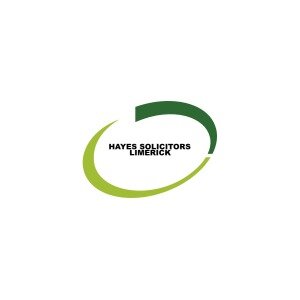Best Father's Rights Lawyers in Limerick
Share your needs with us, get contacted by law firms.
Free. Takes 2 min.
Free Guide to Hiring a Family Lawyer
List of the best lawyers in Limerick, Ireland
About Father's Rights Law in Limerick, Ireland
Father's rights law in Limerick, Ireland, governs the legal relationship between fathers and their children, especially when parents are unmarried, separated, or divorced. These laws protect a father's right to be actively involved in his child's life and outline the responsibilities he must uphold. While fathers have equal rights under Irish law, practical situations such as custody, guardianship, and access can present challenges that require legal clarity and action. The family law system in Ireland aims to prioritise the best interests of the child while ensuring both parents have an opportunity to maintain meaningful relationships with their children.
Why You May Need a Lawyer
There are several circumstances in which legal support becomes essential regarding father's rights in Limerick. Disputes over custody, access arrangements, or disagreements on parental responsibility often require formal legal intervention. Additionally, if you are seeking to establish paternity, apply for guardianship, resolve child maintenance issues, or challenge existing court orders, a solicitor experienced in family law can offer invaluable guidance. Even in less contentious situations, legal advice helps ensure your rights are fully recognised and that any agreements you reach are fair, enforceable, and in the child's best interest.
Local Laws Overview
In Ireland, including Limerick, the legal framework for father's rights is mainly guided by the Guardianship of Infants Act 1964 (as amended), the Family Law Act 1995, and related legislation. Key points include:
- Unmarried fathers do not automatically have guardianship rights. They may apply for guardianship through the District Court or be appointed by agreement with the child's mother.
- Married fathers are automatically legal guardians, sharing parental responsibility with the mother.
- Both parents are encouraged to agree on custody and access arrangements, but the court may intervene where disputes arise.
- The welfare of the child is the central consideration in all matters of custody and access.
- Child maintenance obligations apply to both parents, regardless of the nature of their relationship.
- Paternity may need to be established before certain rights or responsibilities can be determined legally.
Frequently Asked Questions
What rights does an unmarried father have in Limerick?
An unmarried father does not automatically have guardianship rights, but he can apply to become a guardian either with the mother's consent or through a court application. He can also seek access and custody rights.
How can I get access to my child if the other parent refuses?
If informal arrangements are not possible, you can apply to the District Court for an access order. The court will make a decision based on the best interests of the child.
What is guardianship, and how do I obtain it?
Guardianship grants the right to be involved in major decisions in your child's life. Unmarried fathers can gain guardianship by completing a statutory declaration with the mother or by applying to the local court.
Do I need to pay child maintenance even if I do not have custody?
Yes, both parents have a legal duty to financially support their child. Maintenance arrangements can be agreed upon privately or determined by the court.
How is child custody decided?
Custody decisions are made based on what is in the best interests of the child. Courts favour agreements between parents but will intervene if necessary to protect the child's welfare.
Can I change existing access or custody arrangements?
Yes, if circumstances change or current arrangements are not working, you can apply to the court to have orders reviewed and amended.
Is mediation available for disputes?
Yes, mediation services are available and are often encouraged to help parents reach agreement without going to court. The Family Mediation Service is widely used in Limerick.
What role does the child's wishes play in custody cases?
The court will consider the views of the child, taking into account the child's age and understanding, but the ultimate decision rests on the child's best interests.
Do fathers have the same rights as mothers?
Legally, both parents have equal rights and responsibilities, though unmarried fathers must take additional steps to secure guardianship and certain parental rights.
How do I prove paternity if needed?
You may be asked to undergo a DNA test if paternity is disputed. With court approval, this can help establish your legal relationship with your child.
Additional Resources
If you need further information or support on father's rights in Limerick, consider contacting the following organisations and services:
- Legal Aid Board - for advice and legal representation if you qualify for legal aid
- Citizens Information Centres - for practical advice and information on your rights
- Family Mediation Service - to help parents resolve disputes amicably
- Local solicitors specialising in family law
- Parenting organisations and support groups for fathers in Ireland
Next Steps
If you are facing a father's rights issue in Limerick, start by documenting your situation and gathering any relevant records or correspondence. Seek an initial consultation with a family law solicitor to discuss your legal options and the best course of action. If urgent, such as a risk to your child's well-being, apply immediately to the District Court for appropriate orders. Using available support services, such as mediation, may help resolve issues more amicably. Above all, focus on the best interests of your child and ensure you understand your rights and responsibilities before taking action.
Lawzana helps you find the best lawyers and law firms in Limerick through a curated and pre-screened list of qualified legal professionals. Our platform offers rankings and detailed profiles of attorneys and law firms, allowing you to compare based on practice areas, including Father's Rights, experience, and client feedback.
Each profile includes a description of the firm's areas of practice, client reviews, team members and partners, year of establishment, spoken languages, office locations, contact information, social media presence, and any published articles or resources. Most firms on our platform speak English and are experienced in both local and international legal matters.
Get a quote from top-rated law firms in Limerick, Ireland — quickly, securely, and without unnecessary hassle.
Disclaimer:
The information provided on this page is for general informational purposes only and does not constitute legal advice. While we strive to ensure the accuracy and relevance of the content, legal information may change over time, and interpretations of the law can vary. You should always consult with a qualified legal professional for advice specific to your situation.
We disclaim all liability for actions taken or not taken based on the content of this page. If you believe any information is incorrect or outdated, please contact us, and we will review and update it where appropriate.















